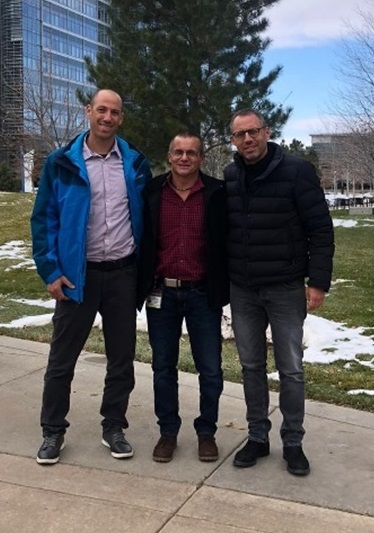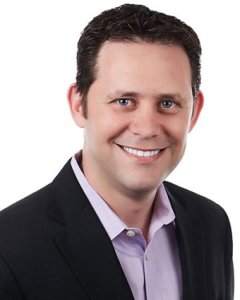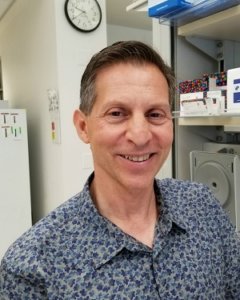
Neufeld Award winners
Neufeld Award winners study key issues relating to weight loss, brain tumors
Since its inception more than 20 years ago, BSF’s Neufeld Award has meant important early recognition for young Israeli and U.S. scientists in the health field.
The award honors the memory of BSF advocate Prof. Henry Neufeld, a world-class cardiologist and scholar, and founder and director of the Cardiac Clinic at Sheba Hospital in Tel Hashomer.
Singling out the most outstanding and original projects in the health sciences among BSF’s new grant recipients, the Neufeld Award provides winners with additional grant funding, on top of their already-approved BSF grants.
This year’s accomplished laureates are Dr. Yftach Gepner of Tel Aviv University, partnering with Dr. Edward Melanson of the University of Colorado Anschutz Medical Campus, and Dr. Lior Mayo of Tel Aviv University, partnering with Dr. Paul Mischel of the University of California, San Diego. Congratulations to all of them.
Exploring connections between exercise and energy

Common belief says that to lose weight, a person should eat less and exercise more. However, an increasing number of studies have validated what many frustrated dieters already experienced – that more exercise does not necessarily lead to weight loss. Even if it does, people often regain the weight they lose, especially if they do not keep up their levels of exercise or major caloric restrictions.
As part of their BSF-supported project, Dr. Yftach Gepner of Tel Aviv University, and Dr. Dr. Edward Melanson of the University of Colorado, are taking a close look at the connection between exercise and a process called total energy expenditure.
Total energy expenditure is the amount of calories burned by the human body in one day, adjusted to a person’s amount of activity. It can be divided into different components: energy expenditure at rest, during physical activity and during food digestion.
Gepner and Melanson are using a combinations of methods to asses changes in organ volume and measurement of daily calories burned. They are also testing the metabolic effects of exercise on energy expenditure.
Gepner’s lab at Tel Aviv University focuses on understanding the impact of exercise training, combined with dietary strategies, on muscle damage and mass, metabolism and performance across a range of populations. Melanson is focused on studying biological mechanisms that influence energy balance and thus the propensity towards weight gain and obesity.
Their common research interests in metabolism, obesity and exercise led them to meet for the first time at the University of Colorado in 2019.
“The aim of this project is to improve our understanding of how moderate exercise intensity affects the size and metabolic rate of our organs as an adaptive response,” Gepner said.
Alternative strategies in fighting brain tumors

Brain tumors contribute to hundreds of thousands of deaths every year, with typical survival of under two years. Even with aggressive treatment by surgery, radiation, and chemotherapy, most therapeutic approaches targeting brain tumors fail.
With the hope of finding answers that lead to much needed advances, Dr. Lior Mayo of Tel Aviv University Dr. Paul Mischel of the University of California, San Diego., are focusing on microglial
cells, which play an essential role in tumor progression. However, understanding of the full contribution of the microglial cells to the tumor progression is minimal.
As part of their project, Mayo and Mischel are exploring some fundamental questions: What is the role of the microglia-cholesterol axis in the diseased brain? And will its manipulation reduce the progression of brain cancer?

Mayo said this work is particularly exciting because it bridges two fields – cancer biology and immunobiology.
“This project is poised to provide new insight into how the brain’s intrinsic support cells become coopted to participate in helping brain cancer progress. It is important because it provides potential points of action. It is quite possible the work we plan to do may lead to new ways to treat brain cancer patients,” Mayo said.
They met when Mischel visited Tel Aviv University for a seminar in 2019.
“It became clear to both of us that there was a wonderful potential for collaboration and a true synergy in how we approach science,” Mischel said. “I also knew immediately that Lior is a rising star and that engaging in this collaboration promised to be scientifically impactful, intellectually exciting, and great fun to work together.”
